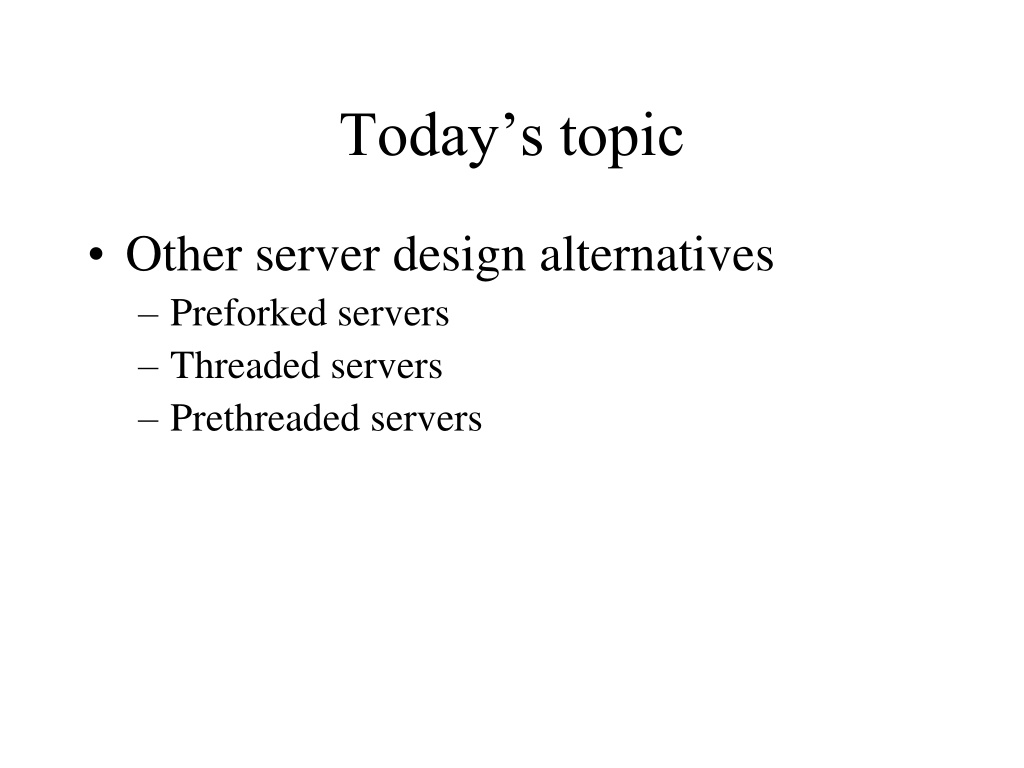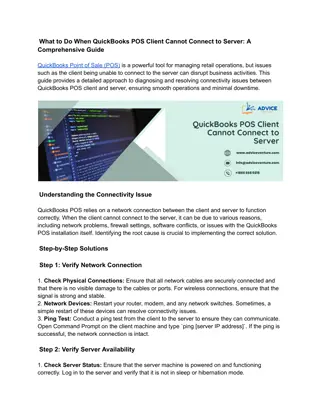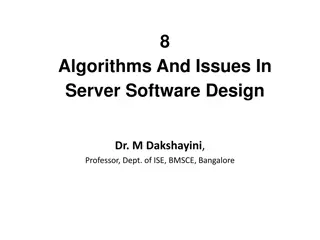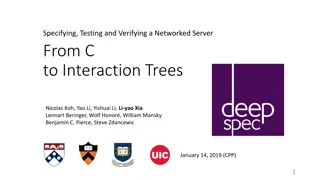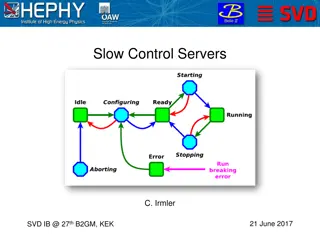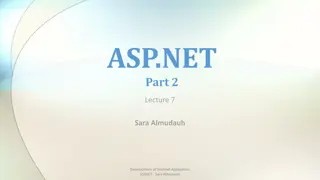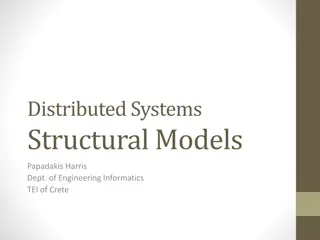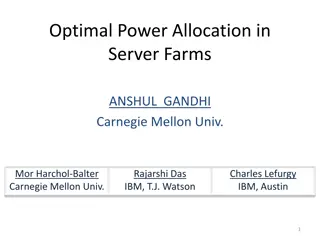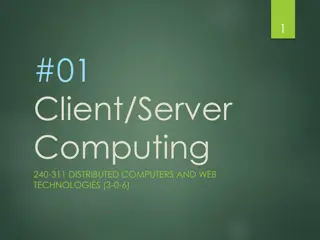Server Design Alternatives - A Comprehensive Overview
Exploring various server design alternatives such as preforked servers, threaded servers, prethreaded servers, sequential servers, and multiplexed servers. Discussing their implementations, efficiency, limitations, and potential combinations for optimal performance.
Download Presentation

Please find below an Image/Link to download the presentation.
The content on the website is provided AS IS for your information and personal use only. It may not be sold, licensed, or shared on other websites without obtaining consent from the author. Download presentation by click this link. If you encounter any issues during the download, it is possible that the publisher has removed the file from their server.
E N D
Presentation Transcript
Todays topic Other server design alternatives Preforked servers Threaded servers Prethreaded servers
Sequential server socket() bind() Handle one connection at a time listen() accept() read() write() read() close()
Sequential server Concurrent server (example2.c) socket() socket() bind() bind() listen() listen() Loop forever accept() accept() fork read() Close accepted socket Close listen socket read() write() write() read() close() close() read()
Multiplexed server socket() bind() listen() Loop forever select If listen socket is active accept, book keeping If data socket is active: read/write If read returns 0, close the socket, book keeping If standard input is active: act accordingly
Multiplexed server (example4.c): Multiplexed server/concurrent server: which one is more efficient? Can we have the best of both worlds?
Preforked server: Main limitation with the concurrent server fork overheads. Is context switching a big problem? Removing the fork overheads Pre-fork N processes and use them forever.
Sequential server Prefork server (example5.c) socket() socket() bind() bind() listen() listen() N Fork() s accept() accept() read() accept() read() read() write() write() write() close() close() close()
Preforked Servers Accept: It extracts the first connection request on the queue of pending connections, creates a new connected socket, and returns a new file descriptor referring to that socket. The newly created socket is not in the listening state. The original socket sockfd is unaffected by this call. Only one will return!!
Preforked server: Disadvantages Not easy to guess the right number of child processes. Comparison to other server implementation techniques: Single CPU, multiple CPU s Concurrent, multiplex, and prefork are building blocks for server implementation. One can use a combination of techniques. E.g. pre-fork N multiplexed servers.
IO multiplexing with threads IO mutiplexing at the process level requires the select call. Multi-threading can achieve the same effect Idea: use one thread to process one input stream Multiplexing is implicit at the systems level See echo_client_thread.cpp getaddrinfo a network address and service translation method.
Threaded Server Limitations with process-based concurrent servers Fork is expensive Inter-process communications are hard Threads Lightweight process Crashing one thread will kill all program See echo_server_thread.cpp Not robust implemented like concurrent server. Can share data structures
Prethreaded Servers A number of threads are precreated to handle clients Only one thread can be blocked on accept() Access to accept () controlled by a mutex See echo_server_prethread.cpp
